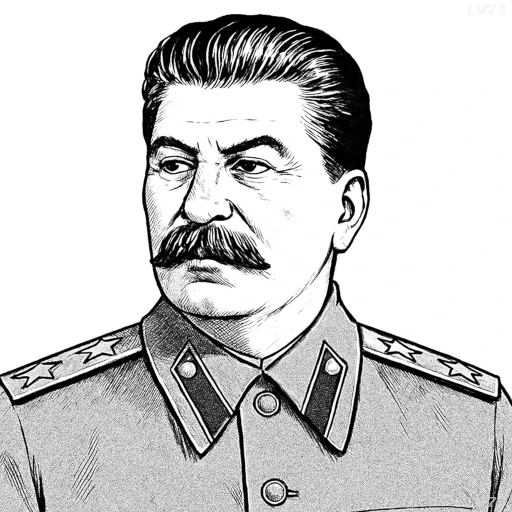“When we hang the capitalists they will sell us the rope we use.”

- December 18, 1878 – March 5, 1953
- Born in Georgia
- Politician
table of contents
Quote
“When we hang the capitalists they will sell us the rope we use.”
Explanation
This quote reflects Stalin’s cynical view of capitalist society, particularly its inherent contradictions and the exploitation he believed existed within it. Stalin is suggesting that capitalists, driven by profit, would willingly enable their own downfall by selling the very tools (in this case, rope) that would be used to destroy them. This metaphorical language highlights Stalin’s belief that capitalism, despite its oppression of the working class, would ultimately be self-destructive due to its greed and exploitation. Under Stalin’s rule, this viewpoint was used to justify the hostility toward capitalist nations and to strengthen the narrative of class warfare, which was central to the ideology of the Soviet Union.
Historically, this quote aligns with Stalin’s belief in the inevitable collapse of capitalism and his desire to replace it with a socialist system. He often described the struggle between the working class (the proletariat) and the capitalist class (the bourgeoisie) as an irreconcilable conflict. In Stalin’s view, even when capitalists profited from selling goods or services to the state, they were unknowingly contributing to their own downfall. Stalin’s assertion that capitalists would “sell the rope” symbolized his belief that the very mechanisms of capitalism would eventually be used to dismantle the capitalist system itself, paving the way for a socialist future.
In a broader, modern context, this quote can be seen as a reflection of the tensions between economic systems and the dynamics of power. It underscores the idea that self-interest can sometimes lead individuals or groups to make decisions that ultimately work against their own survival or benefit. The quote also highlights the ruthlessness of revolutionary rhetoric and the ways in which systems of power can justify extreme actions. Today, it serves as a reminder of the dangers of ideological rigidity and the potential for violence in the pursuit of political or economic change, especially when opposing systems view each other as irreconcilable enemies.
Would you like to share your impressions or related stories about this quote in the comments section?
